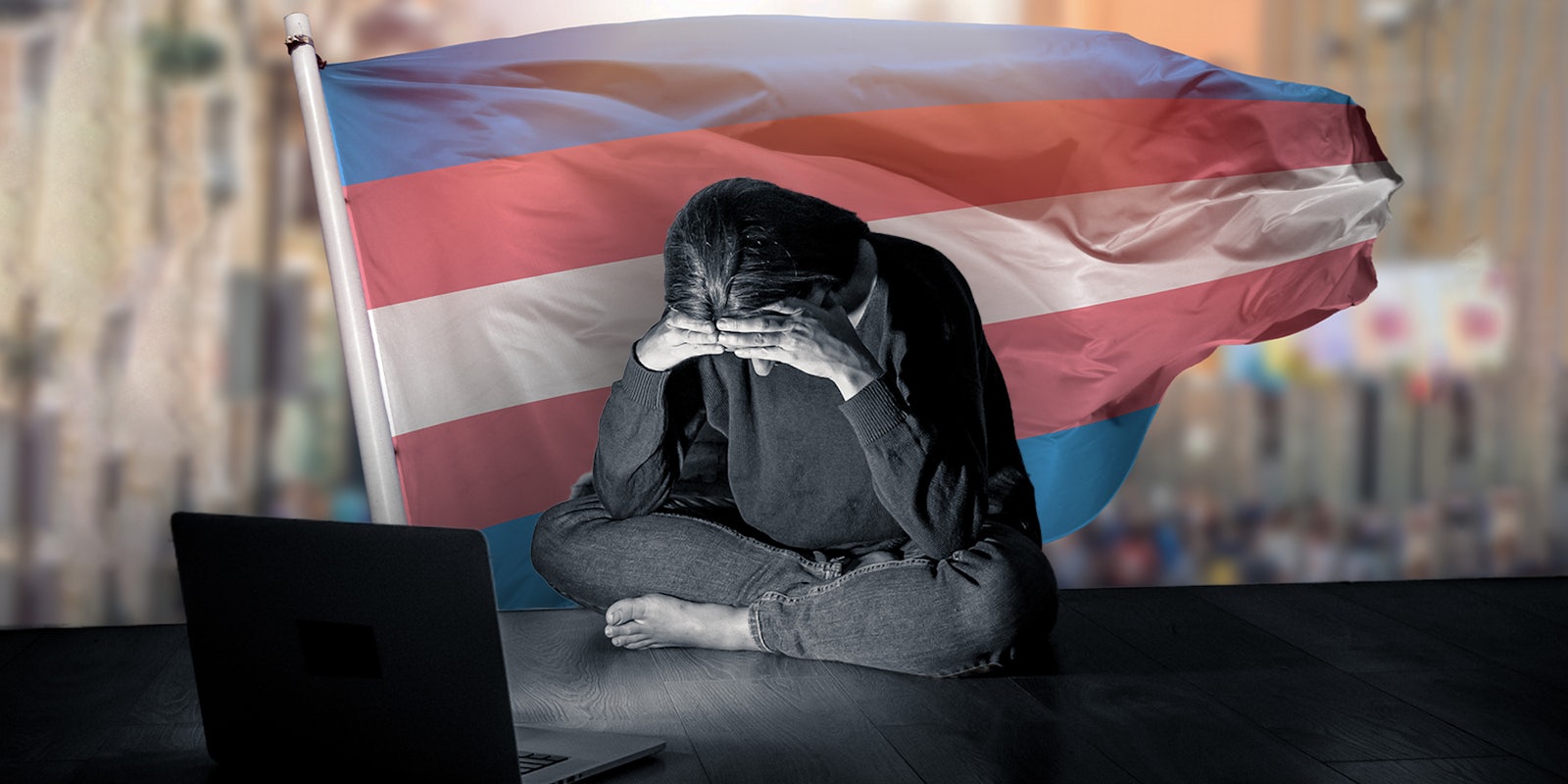The U.S. Transgender Survey released its early insights yesterday, which included data stating that almost 40% of trans people have been harassed or bullied online because of their gender identity. What’s more, 80% of adult respondents said they’d been harassed both online and off while in school.
Those figures are consistent with a 2023 study from UCLA’s Williams Institute that also found that the majority of trans people surveyed have “accessed formal mental healthcare,” and 42% said they’ve attempted suicide.
The survey was administered in 2022 and queried over 90,000 trans people ages 16 or older. It was conducted by the National Center for Transgender Equality and included up to 600 questions.
In its Early Insights Report, the Center shared that 39% of its respondents reported having been harassed online within the last year, and 80% of respondents experienced “verbal harassment, physical attacks, online bullying,” misgendering, and/or been denied the ability to dress or use the bathroom according to their gender while in school.
Students transitioning while in school has become a frequently attacked topic by Republicans, who have passed bills at the state level aimed at outing students who are trans and banning trans students from using the bathroom that best corresponds with their gender identity. Trans students are also vulnerable to cyberbullying, which can come from their peers and even entire social media platforms.
In the wake of the survey’s Early Insights being released, many have compared its data to that of the KFF/Washington Post Trans survey released in March 2023.
The KFF/Washington Post survey included answers from 515 respondents, and found that 78% of those surveyed said “transitioning helped them.”
The Center’s much larger survey found that 94% of the trans people surveyed were more satisfied with their lives after transitioning.
Journalist Evan Urquhart, who covers anti-trans propaganda, tweeted about the surveys, analyzing their not-so-different results.
“We have reason to believe trans life is characterized by higher levels of hardship and discrimination, and by low regret and high satisfaction with the decision to transition,” they wrote. “That’s consistent across these two studies and across all or almost all other studies of trans people.”



